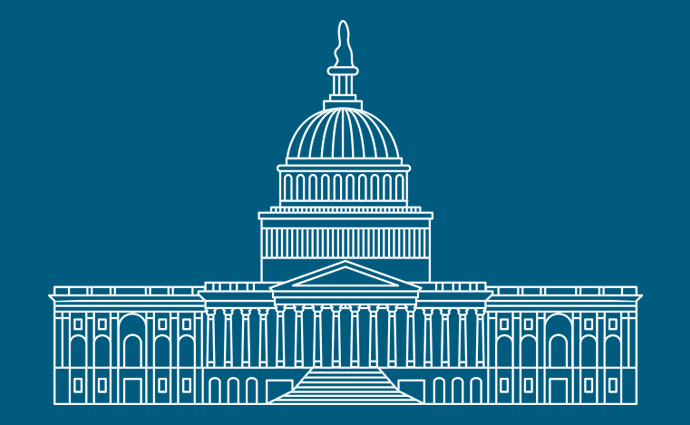Legislation Stopping Medicare Payment Cuts Clears Congress
The House and Senate have passed legislation that will prevent Medicare payment cuts by extending the pause on Medicare and PAYGO sequester reductions.

Source: Getty Images
- UPDATE 12/10/2021: In a 59 to 35 vote on Thursday, the Senate passed legislation that will prevent statutory Medicare payment cuts from taking effect next year. The bill cleared the House earlier this week.
With approval from Congress, President Biden can now sign the bill into law. The law will extend a moratorium on the 2 percent Medicare sequestration until April 2022, then reduce the amount taken from payments to 1 percent for another three months. The law also prevents the statutory Pay-As-You-Go cuts to Medicare, which total 4 percent of Medicare payments, and some of the rate cuts finalized in the Medicare Physician Fee Schedule final rule from November.
Additionally, the law will delay payment cuts for clinical laboratories and postpone the launch of the Radiation Oncology Model, which was slated to start in January.
“The wheels of Congress don’t always move quickly, but today they did move toward preserving the viability of physician practices and maintaining access to care,” said Gerald E. Harmon, MD, president of the American Medical Association (AMA), in a statement on Thursday.
“Potential reductions in Medicare payments for physician services hung over the heads of patients and practices like a sword of Damocles. The Senate action today, following a similar House vote this week, would delay the reductions and give Congress time to work on reforms to address the flaws in the Medicare payment system,” Harmon stated.
READ MORE: Hospital Groups Want Congress to Delay 2% Medicare Sequester Cuts
In response to the Senate’s passage of the bill, Rick Pollack, president and CEO of the American Hospital Association (AHA), also said the legislation “removes the uncertainty these cuts were creating for our nation’s caregivers.”
House Passes Bill to Avert Looming Medicare Sequester, PAYGO Cuts
The House voted 222-212 to pass a legislative package that would prevent the Medicare sequester and Pay-As-You-Go cuts slated to take effect early next year. If passed by the Senate, the package would avert a 6 percent cut to Medicare reimbursement for physicians in early 2022.
The Supporting Health Care Providers During the COVID-19 Pandemic Act was introduced by Congress members Steven Horsford (D-NV-04) and Kim Schrier (D-WA-08) on Dec. 7. The legislative package aims to extend the moratorium on the 2 percent Medicare sequester cut for the first three months of 2022, followed by a reduced 1 percent cut through June 2022.
The legislative package as passed by the House late Tuesday night would also provide a one-year rate increase of 3 percent for services delivered under the Medicare Physician Fee Schedule. Physicians are currently facing a rate reduction of 3.75 percent per a final rule released by CMS last month.
CMS finalized the rate reduction to account for the expiration of a temporary 3.75 percent rate increase, which Congress approved through pandemic-related legislation last year. Congress members Horsford and Schrier said the rate increase in the Supporting Health Care Providers During the COVID-19 Pandemic Act would “adjust for changes and provide support to fatigued [healthcare] providers during the COVID-19 public health emergency.”
READ MORE: Medical Group Revenue Declines Underscore Need for Efficiency
Other provisions in the legislative package include a delay to Medicare payment reductions to the clinical laboratory fee schedule for one year and postponement of Medicare’s Radiation Oncology Model’s launch for another year. The cancer-focused alternative payment model was slated to start on Jan. 1, 2022.
“The AHA is pleased that the House has recognized that now is not the time to make cuts to hospitals and physicians under the Medicare program,” Rick Pollack, president and CEO of the American Hospital Association (AHA), said in a statement on Tuesday.
“By eliminating a 2 [percent] Medicare reduction until April 2022 and stopping the 4 [percent] Statutory Pay-As-You-Go (PAYGO) Medicare cuts from taking effect in early 2022, providers on the front lines of the fight against COVID-19 will not face additional imminent financial jeopardy as they continue to care for patients and communities,” Pollack stated.
The American Medical Association (AMA) also backed the Supporting Health Care Providers During the COVID-19 Pandemic Act. The medical group urged Congress to support the proposal and “join together again in the new year to develop long-term solutions to address the flaws in the Medicare payment system.”
Healthcare providers have warned policymakers that looming Medicare cuts, which total near 10 percent of physician revenue through the program altogether, will harm the healthcare system.
READ MORE: COVID-19 Hospital Revenue Losses Could Reach Up to $122B in 2021
“During COVID and with everything that we experienced, by that I mean elective surgery stopped much like it did for everybody else, we furloughed half of our 1,000 employees. I don’t want to do that again under Medicare cuts,” Carol Brockmiller, CEO of Quincy Medical Group, an independent, multi-specialty, physician-owned group based in Illinois, said in a press call hosted by AMGA (American Medical Group Association) in October.
Most medical group and integrated health system leaders polled by AMGA earlier that year said that staffing and workforce management will take a hit if the cuts go into effect. Nearly half (47 percent) said they would redesign physician compensation arrangements as a result of the cuts, while 43 percent said they would put a freeze on hiring. A quarter of respondents also said they would have to furlough or lay-off staff and nearly 20 precent said they would let go of clinical staff.
Other medical group leaders said as part of the survey that they would have to delay population health initiatives, postpone delivery system improvements or care model changes, and eliminate services if the Medicare cuts go through.
The Supporting Health Care Providers During the COVID-19 Pandemic Act is headed to the Senate for a vote.
The original version of this article published on 12/09/2021.
